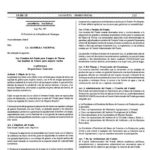Gender Equality And Land Law In Cambodia
The presentation will highlight the importance of establishing knowledge and understanding about “gender mainstreaming” strategies and gender equality within the Cambodian Land Administration Sub Sector Program (LA-SSP) and the land policy. Gender oriented objectives of the LA-SSP comprise of sustainable improvement of the living conditions of the urban and rural population of Cambodia, especially for women.
National Gender Profile of Agricultural Households 2010
Cambodia has a land area of 181 035 square kilometers and a population of almost 14 million people (2008). In 2008, about 82 percent of the households lived in rural areas. A large majority of these households engage in rice- based agriculture, collection of forest products and livestock production. The agricultural sector generates about 32 percent of the Gross Domestic Product and provides employment to about 80 percent of the country’s labour force. The sector is dominated by small farm households who are mainly engaged in subsistence production.
Rural women's access to land and property in selected countries: Progress towards achieving the aims of the Convention on the Elimination of all forms of Discrimination against Women (CEDAW) INCLUDING 2010 UPDATE
In 2010, the ILC Secretariat decided to update information contained in the 2004 publication, so as to have a new basis to work more closely with and through CEDAW at national level. The update gives more visibility to the CEDAW Committee’s Concluding Observations and, accordingly, also to the CSOs’ shadow reports feeding them. This inclusion offers a more critical and comprehensive, if preliminary, overview of the situation of rural women in selected countries. NOTE: The 2004 publication is also available through this site.
USAID Country Profile: Property Rights and Resource Governance - Burma
Burma is situated in Southeastern Asia, bordering Bangladesh, India, China, Laos and Thailand. The majority of its population lives in rural areas and depends on land as a primary means of livelihood. Because all land in Burma ultimately belongs to the state, citizens and organizations depend upon use-rights, but do not own land. Burma’s laws grant women equal rights in some respects and also recognize certain customary laws that provide women equal rights in relation to land.
Ley creadora del fondo para compra de tierras con equidad de género para mujeres rurales
La presente Ley tiene como objeto crear un fondo para compra de tierra con equidad de genera para mujeres rurales, con el fin de otorgar apropiación jurídica y material de la tierra a favor de las mujeres rurales, que permitirá, además de mejorar la calidad de vida del núcleo familiar, el acceso a los recursos financieros,priorizando a aquellas mujeres cabezas de familia, de bajos recursos económicos.
Latinoamerica: Mujeres rurales, entre éxito y explotación
La imagen tradicional de las mujeres rurales de América Latina, marcada por la subsistencia y el cuidado de su familia, da paso a otra de protagonistas de actividades comerciales y productivas a pequeña y gran escala, en un cambio que tiene detrás historias de éxitos y también de explotación.
Acceso a la tierra en Latinoamérica y Bolivia
Annalisa Maure, gerente de Programas de la Coalición Internacional para el Acceso a la Tierra, describe el panorama del acceso a la tierra en el mundo, Latinoamérica y Bolivia.
Abriendo camino en Crucitas
Este documental recopila la experiencia de las familias vecinas de Crucitas, Costa Rica y las implicaciones de los trabajos realizados para la apertura del espacio para minería a cielo abierto.
El acceso y el control de los recursos por parte de las mujeres: un desafío para la seguridad alimentaria
Durante los últimos años, ya sea con motivo de la crisis de materias primas, la crisis financiera o medioambiental, se han registrado una serie de crisis que han impactado en la seguridad alimentaria del mundo. En 2009, el número de personas que pasaron hambre en el mundo, aumentó.
Género y propiedad de la tierra en Perú
En la Sección de Estudios Internacionales en el Instituto Noruego de Investigación Regional y Urbana (NIBR) empezaron hace poco un proyecto de investigación llamado “Cómo la formalización en Perú disminuyó la desigualdad en género de propiedad de la tierra y el impacto sobre el empoderamiento de la mujer”. Este analiza relaciones entre género y propiedad de tierra desde una perspectiva económica como base, pero con apertura en las metodologías de investigación.






